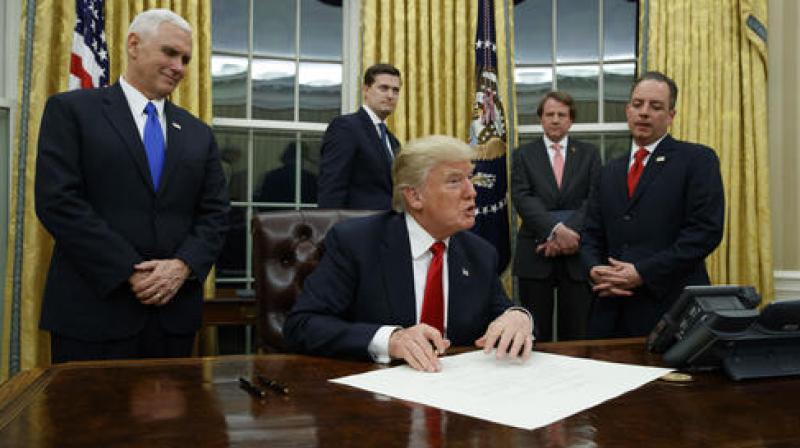US President Trump signs executive decree against Obamacare health law

Washington: President Donald Trump on Friday signed an executive order aimed at limiting the "burden" of the Obamacare health law that the incoming US leader has vowed to repeal.
During the signing in the Oval Office, Trump's chief of staff Reince Priebus described the order as aimed at "minimizing the economic burden" of the 2010 Affordable Care Act, "pending repeal."
Doing away with Barack Obama's signature domestic achievement is a top priority for Republicans, who control both chambers of Congress and, since Trump's inauguration Friday, the White House.
In their view, Obamacare -- which aimed to ensure healthcare for the millions of Americans who are neither covered by public insurance, nor by their employers -- marked a costly drift toward socialized, European-style medical care.
But the law has managed to add more than 20 million people onto insurance rolls, lowering the percentage of Americans without coverage from 16 percent in 2010 to 8.9 percent last year.
And Trump has declared it inconceivable that poor Americans are locked out of health coverage. The president has said the law should be repealed and replaced "simultaneously," a stiff challenge given the complexity of America's vast health care system.
Republicans are pledging a repeal of Obamacare and rapid votes on a replacement bill in order to prevent gaps in coverage and reassure a restless insurance industry.
Only one third of the US population is covered by public insurance -- either Medicare, for those over age 65, or Medicaid for the poorest Americans.
Half of all Americans are insured through their employers, according to the Kaiser Family Foundation, while about seven percent are covered through the so-called individual market, which serves those who are self-employed or are employees without coverage through work.
Obama's solution rested largely on requiring that everyone be insured, and providing federal subsidies to those who cannot afford coverage. Republicans deemed the first requirement too coercive, and the latter too costly.

